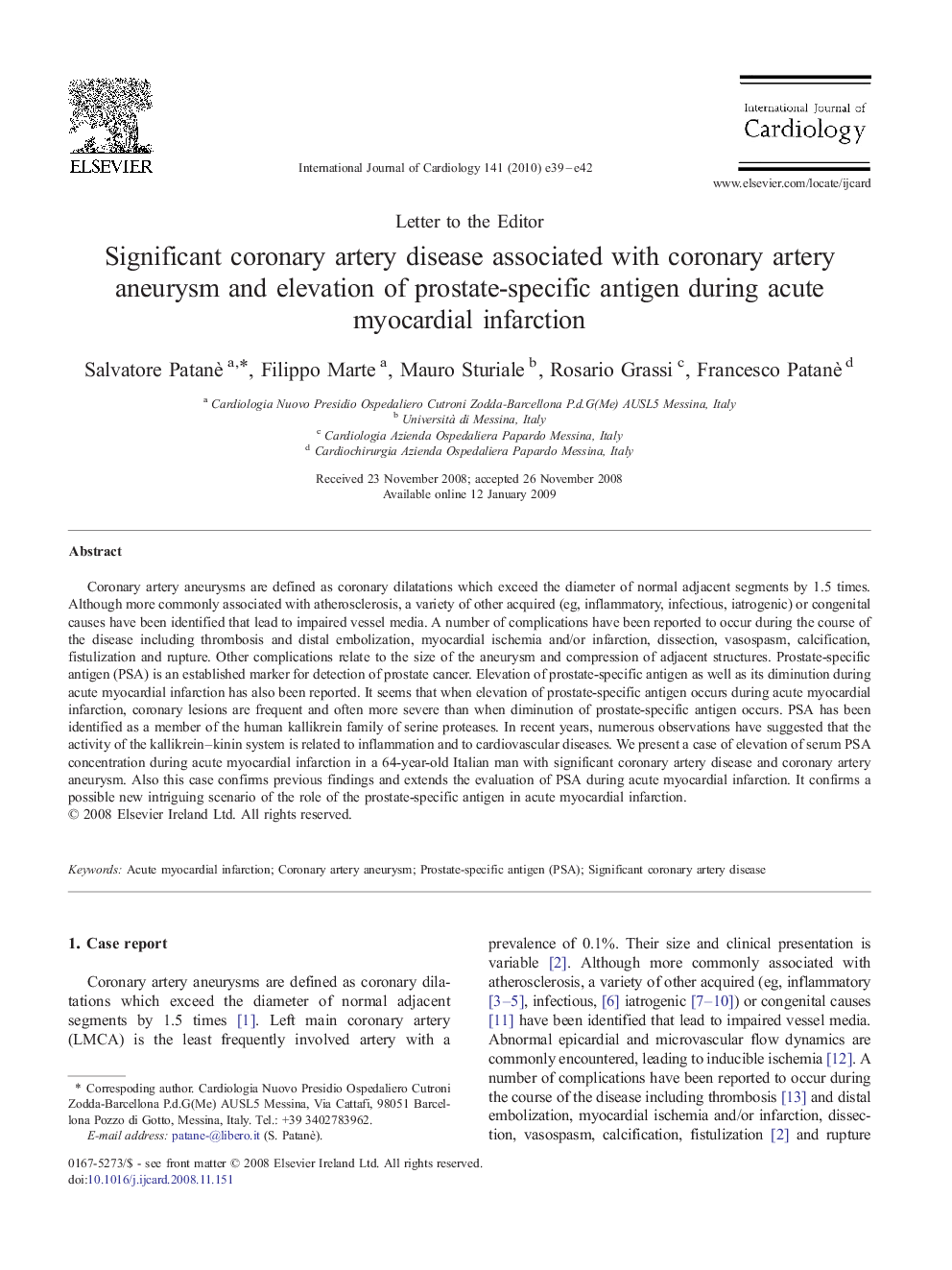| Article ID | Journal | Published Year | Pages | File Type |
|---|---|---|---|---|
| 2932754 | International Journal of Cardiology | 2010 | 4 Pages |
Coronary artery aneurysms are defined as coronary dilatations which exceed the diameter of normal adjacent segments by 1.5 times. Although more commonly associated with atherosclerosis, a variety of other acquired (eg, inflammatory, infectious, iatrogenic) or congenital causes have been identified that lead to impaired vessel media. A number of complications have been reported to occur during the course of the disease including thrombosis and distal embolization, myocardial ischemia and/or infarction, dissection, vasospasm, calcification, fistulization and rupture. Other complications relate to the size of the aneurysm and compression of adjacent structures. Prostate-specific antigen (PSA) is an established marker for detection of prostate cancer. Elevation of prostate-specific antigen as well as its diminution during acute myocardial infarction has also been reported. It seems that when elevation of prostate-specific antigen occurs during acute myocardial infarction, coronary lesions are frequent and often more severe than when diminution of prostate-specific antigen occurs. PSA has been identified as a member of the human kallikrein family of serine proteases. In recent years, numerous observations have suggested that the activity of the kallikrein–kinin system is related to inflammation and to cardiovascular diseases. We present a case of elevation of serum PSA concentration during acute myocardial infarction in a 64-year-old Italian man with significant coronary artery disease and coronary artery aneurysm. Also this case confirms previous findings and extends the evaluation of PSA during acute myocardial infarction. It confirms a possible new intriguing scenario of the role of the prostate-specific antigen in acute myocardial infarction.
